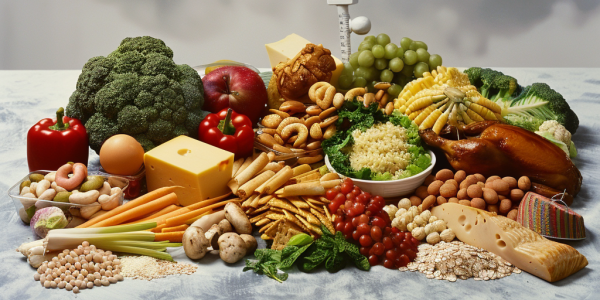Ultra-Processed Foods Linked to Reduced Lifespan, Study Reveals
Recent research reveals that ultra-processed foods (UPFs), commonly consumed at fast-food outlets and sports events, can significantly reduce lifespan. A hot dog may cost you 36 minutes of life, while a sugary soda adds another 12 minutes. In contrast, healthier foods like fish and fruits can enhance longevity. This study underscores the urgent need for dietary changes to improve health and highlights the importance of making informed food choices.
Study Links Seed Oils to Rising Colon Cancer Rates in Young Adults
A recent study reveals potential health risks linked to seed oils in the American diet, particularly concerning rising colon cancer rates among young adults. Researchers found high levels of bioactive lipids in tumor samples, suggesting these oils may promote inflammation and cancer risk. Experts advocate for healthier alternatives like olive and avocado oil, while the debate continues within the medical community about the safety of seed oils. Stay informed about your cooking oil choices to better understand their health impacts.
Ultra-Processed Foods Linked to Accelerated Biological Aging
Recent studies reveal a troubling link between ultra-processed foods (UPFs) and accelerated biological aging. Research from Italy shows that a diet high in UPFs, which includes packaged snacks and sugary drinks, can lead to significant health risks and increased aging markers. With over 57% of food consumed in the UK classified as ultra-processed, experts urge a shift towards whole, minimally processed foods for better health outcomes.
Study Reveals Ultra-Processed Foods May Aid Muscle Growth
Recent research reveals that ultra-processed foods may contribute to muscle growth, challenging the belief that they only lead to weight gain. The study highlights a complex relationship between these foods and muscle development, indicating that even modest consumption can enhance muscle mass due to high caloric density and essential nutrients. However, experts caution against excessive intake due to potential long-term health risks. A balanced diet incorporating whole foods alongside moderate ultra-processed food consumption is recommended for optimal health and fitness.
American Diabetes Month: Focus on Reducing Ultra-Processed Foods for Better Health
As American Diabetes Month unfolds, Intermountain Health highlights the dangers of ultra-processed foods, linking them to serious health risks like Type 2 diabetes and heart disease. With over 38 million Americans affected by diabetes, the importance of dietary awareness and lifestyle changes is crucial. By opting for whole foods and reducing ultra-processed food intake, individuals can significantly lower their diabetes risk and improve overall health. Join the movement for better health this November!
Rethinking Food Addiction: Beyond Ultra-Processed Foods
Recent discussions highlight the addictive nature of ultra-processed foods (UPFs) and their link to unhealthy eating patterns. FDA Commissioner Robert Califf emphasizes the need to address food addiction beyond just UPFs, acknowledging the role of various foods and environmental factors in dietary habits. Understanding the complexities of food addiction is essential for tackling obesity and promoting healthier lifestyles.
Key Dietary Considerations for Managing Crohn’s Disease
Managing Crohn’s disease involves understanding key dietary restrictions. This article highlights five food categories to avoid, including dairy products, fatty foods, high-fiber foods, processed foods, and artificial additives. Learn how to effectively manage symptoms and maintain health through informed dietary choices.
Ultra-Processed Foods Linked to Higher Mortality Risks, Especially in Women
A new study published in Clinical Nutrition reveals that frequent consumption of ultra-processed foods (UPFs) is linked to increased mortality risks, particularly among women. The research, involving 27,670 participants over 23.3 years, highlights the significant association between UPF intake and elevated risks of cardiovascular diseases and premature death. This groundbreaking evidence underscores the urgent need for public health initiatives promoting healthier dietary choices.
Rethinking Ultra-Processed Foods: A Nuanced Approach to Health Impacts
A recent study in the European Journal of Clinical Nutrition challenges the notion that all ultra-processed foods (UPFs) are detrimental to health. Researchers emphasize the need to differentiate between types of UPFs, highlighting that some, like whole grain cereals, may offer health benefits. This nuanced perspective urges a shift in public health messaging to consider lifestyle factors and the broader context of dietary patterns, rather than vilifying all UPFs.
Alarming Rise of Ultra-Processed Foods in American Diets Raises Health Concerns
The alarming rise of ultra-processed foods (UPFs) in American diets, now comprising 60% of adults’ caloric intake and over 70% for children, poses significant health risks. A BMJ study links UPFs to serious conditions like cancer, heart disease, and type 2 diabetes. Experts urge parents to reduce UPF consumption and promote whole foods to improve children’s health and mental well-being.










